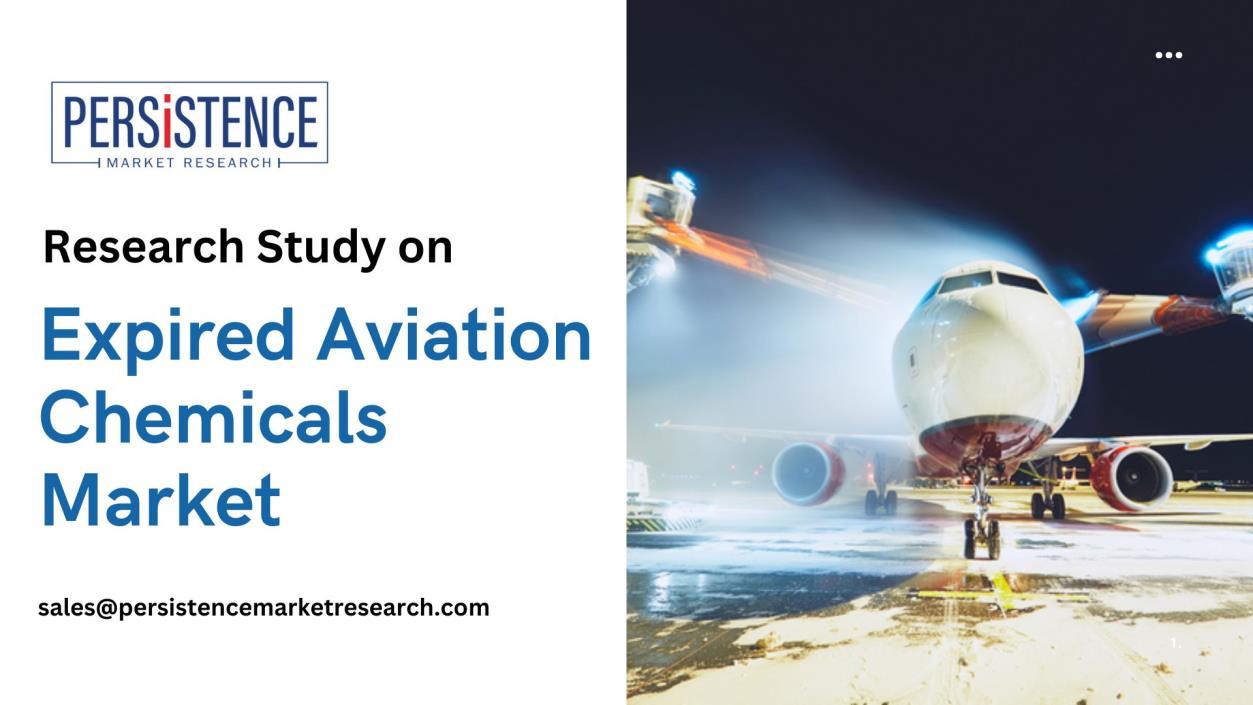Innovative Trends Shaping the Expired Aviation Chemicals Market: A Path Towards Sustainability and Efficiency

About The Expired Aviation Chemicals Market
The aviation industry relies heavily on a variety of chemicals for maintenance, operation, and manufacturing processes. However, a significant portion of these chemicals expire before they can be fully utilized, leading to a burgeoning market for expired aviation chemicals. This sector is witnessing innovative trends and technologies aimed at minimizing waste and optimizing resource use. In this blog post, we'll delve into the top trends and innovations shaping the expired aviation chemicals market. The global expired aviation chemicals market is set to grow at approximately 4.1% CAGR between 2024 and 2031, reaching an estimated size of US$165.1 Mn by the end of forecast year
The Rising Awareness of Sustainability
In recent years, there has been a growing emphasis on sustainability within the aviation industry. This focus has extended to the management of expired aviation chemicals. Companies are increasingly adopting sustainable practices, such as recycling and repurposing expired chemicals, to reduce environmental impact. By doing so, they not only contribute to environmental conservation but also enhance their corporate social responsibility (CSR) profiles.
Advanced Recycling Technologies
One of the most significant innovations in the expired aviation chemicals market is the development of advanced recycling technologies. These technologies are
designed to recover valuable components from expired chemicals, making them reusable for various applications. For instance, sophisticated filtration and distillation processes can extract usable solvents from expired products, reducing waste and lowering costs for airlines and maintenance providers.
Chemical Reclamation Programs
Many aviation companies are implementing chemical reclamation programs to manage expired chemicals more effectively. These programs involve the collection, testing, and reprocessing of expired chemicals to extend their usable life. By reclaiming chemicals, companies can reduce the need for new purchases, minimize disposal costs, and adhere to strict environmental regulations.
Collaborative Efforts and Partnerships
Collaboration is key to innovation in the expired aviation chemicals market. Companies are forming partnerships with research institutions, regulatory bodies, and other stakeholders to develop new methods for handling expired chemicals. These collaborative efforts are leading to breakthroughs in chemical management, safety protocols, and regulatory compliance.
Digital Solutions for Inventory Management
Digital technologies are revolutionizing the way expired aviation chemicals are managed. Advanced inventory management systems equipped with real-time tracking and monitoring capabilities help companies keep tabs on chemical expiration dates. These systems can automatically alert personnel when chemicals are nearing expiration, enabling timely action to either use or repurpose the chemicals before they become unusable.
Regulatory Compliance and Standards
Regulatory compliance is a critical aspect of managing expired aviation chemicals. Innovations in this area include the development of more stringent standards and guidelines for the safe handling, storage, and disposal of expired chemicals. Companies are investing in training programs to ensure that their staff is well-versed in these regulations, thereby minimizing risks associated with chemical mishandling.
Emerging Markets and Opportunities
The market for expired aviation chemicals is expanding beyond traditional boundaries, creating new opportunities for growth. Emerging markets in regions such as Asia-Pacific and Latin America are becoming significant players in this sector. These markets are adopting innovative practices and technologies to manage expired chemicals, driven by the need to enhance aviation safety and sustainability.
Conclusion
The expired aviation chemicals market is undergoing a transformation, driven by a combination of sustainability efforts, technological advancements, and regulatory changes. As companies continue to innovate and adopt best practices, the management of expired chemicals is becoming more efficient and environmentally friendly. The future of this market looks promising, with continued advancements expected to further reduce waste and optimize resource utilization in the aviation industry.
By staying abreast of these trends and innovations, stakeholders in the aviation sector can better manage expired chemicals, contributing to a safer and more sustainable industry.
